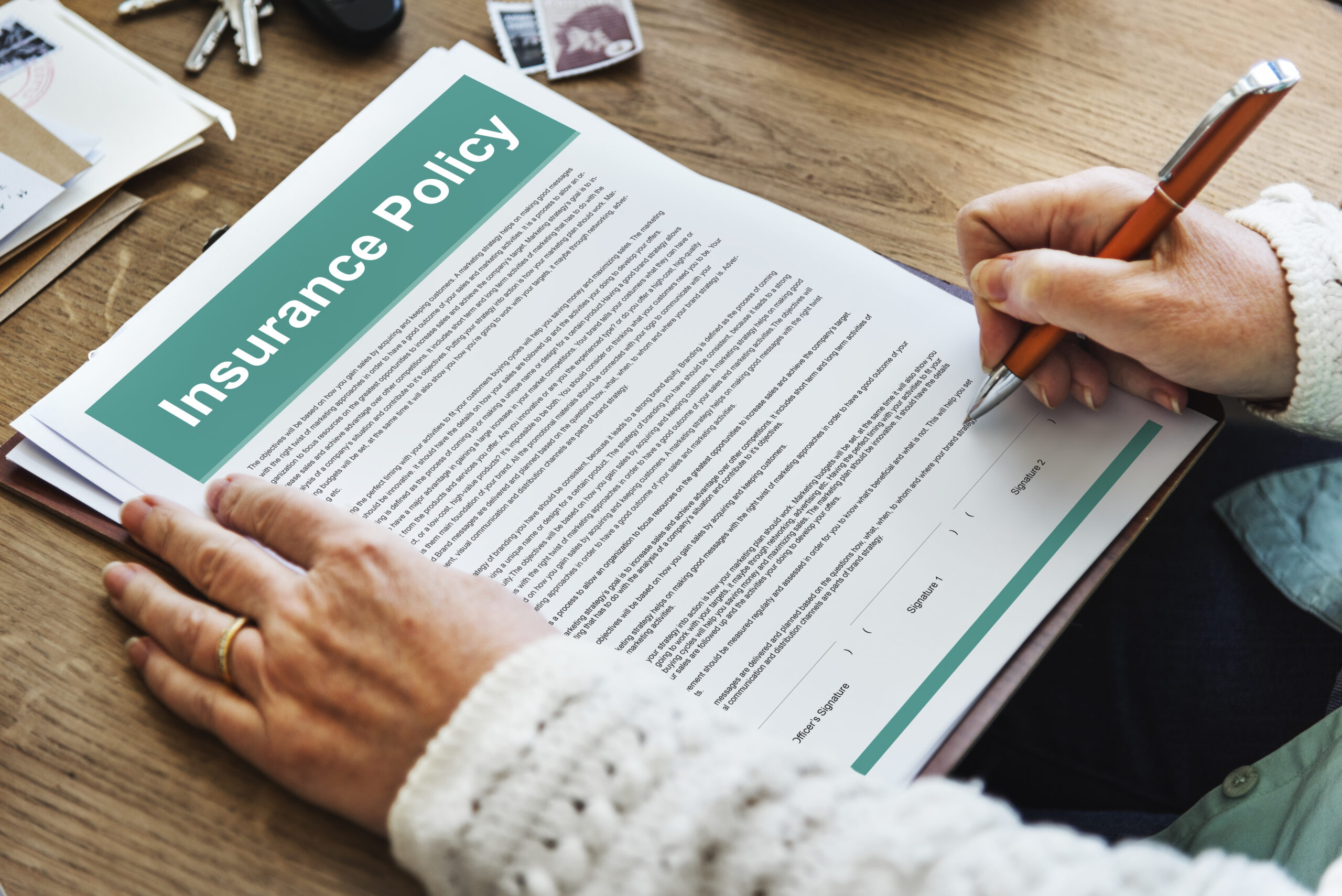Insurance is a tricky business. Whether it’s your home insurance, car insurance, health insurance, or even life insurance, there are a lot of terms being thrown around, and as the policyholder, you should know what they all mean.
You’ll come across some of these insurance terms no matter what your coverage is, while other terms only apply to certain policies.
Bookmark this post for later so you don’t have to go searching too far when it comes to understanding your insurance coverages, claims, and more.
Most Common Insurance Terms
These are the terms you’ll see with any insurance policy, no matter what you’re covering. From home to health, business to trucking.
That makes them easier to learn and remember!
- Premium: The amount you pay monthly for your insurance coverage. Your premium rate varies based on the amount of coverage you select, your location, your age, your history, and many more factors.
- Deductible: If your policy has a deductible, it’s the amount you have to pay when you file a claim before your insurance carrier will process your claim and pay for any damages. In many cases, a higher monthly premium means a lower deductible and vice versa.
- Claim: A request by you, the policyholder, for your insurance carrier to cover losses. When it comes to home and car insurance, you file a claim after you’ve been in an accident or if your water heater bursts. When it comes to health insurance, a claim is filed anytime you see a doctor.
- Adjuster: The insurance carrier employee who reviews the damages or services before approving a claim payment.
- Limit: The maximum amount your insurance policy will pay out for particular incidents. The higher limits you have, the higher your premium will be.
- Liability: Liability is your legal responsibility for the safety of others in your home, car, or business. Liability insurance policies pay for that responsibility in the event of an accident on your property.
- Endorsement/Rider: Optional coverage you can add to your policy that expands the scope of your coverage, such as identity theft or roadside assistance.
- Umbrella insurance: UL coverage is designed to protect against catastrophic losses and in particular, it protects your assets in case you’re sued.
- Peril: A specific risk covered by your insurance like theft or flood.
Now that we’ve got the basic insurance terms down, let’s look at some industry-specific terms you need to know.

Common Auto Insurance Terms
Car insurance is required for Florida drivers. It’s also very nuanced, so it’s crucial that you understand what you’re getting. There are numerous riders you can select for your car insurance and depending on the state you’re in, some additional coverage is required while in others, it’s only recommended.
Let’s dive into the most important auto insurance terms you need to know.
- Personal Injury Protection (PIP): Your PIP policy on your car insurance pays for your medical bills for any treatment you need as a result of an accident. It will not cover injuries sustained by your passengers or people in the other car.
- No Fault Law: Several states, Florida included, have a No Fault law which stipulates that all drivers must carry PIP in their auto policy. The minimum amount varies by state.
- At fault driver: The driver in an accident who is determined to be the cause of an accident.
- Collision coverage: Collision is the portion of your car insurance that covers damages that resulted from colliding with another vehicle or object, when you’re at fault.
- Comprehensive coverage: This policy covers damages to your car that are not caused by a collision but by fire, vandalism, hail, and more.
- Bodily Injury Liability: BIL covers costs associated with the injuries or death of other people caused by your car.
- Gap insurance: If you’ve just leased or financed a new car, you’re responsible for paying back that full amount. If you’re in an accident and the car is totaled however, your insurance will only pay the actual market value of the car, which might be different from the amount left on your loan. Gap insurance covers the difference between the two sums.
- Uninsured motorist coverage: Yes, car insurance is required, but many drivers disregard this law. Uninsured (or underinsured) motorist coverage is additional protection in case you’re in an accident and the at-fault driver does not have coverage.
- Property damage liability: This coverage reimburses other parties if you’ve damaged their property—such as a fence, mailbox, or building—in an accident.

Common Home Insurance Terms
Much like auto insurance, your homeowners policy is one of the most important ones you’ll ever have. And especially in states when the industry is in flux, it’s important that you know what everything means in case you’re faced with updating your policy or finding new coverage.
- Act of God: A natural disaster (flood, tornado) that couldn’t have been prevented with reasonable foresight. If your home is flooded because of a burst water heater, your home insurance will cover the damages (up to your policy amount), but if your home is flooded after a hurricane, you’d need flood insurance to cover those damages.
- Depreciation: Loss in value due to basic wear and tear, specifically for items such as furniture and the roof.
- Actual cash value: The value of your home based on the current cost to rebuild it just as it was before damages (factoring in depreciation). The cash value of your home in insurance terms is not related to the cash value based on the location or housing market.
- Replacement cost coverage: This covers the cost to replace your home just as it was before (without factoring in depreciation).
- Personal property coverage: This covers your belongings inside your house in case they are damaged or stolen.
- Home warranty: Home warranty is an optional coverage that covers the cost for repair and replacement of appliances and systems in your home (plumbing, heating and cooling, kitchen appliances, and more).
- Ordinance or Law Coverage: A rider that gives you additional protection for increased construction costs because of updated ordinances or zoning laws and building codes.
- Wind Mitigation: Features you can add to your home to help it better withstand high winds. If you live somewhere where hurricanes and tornadoes are a regular occurrence, wind mitigation can save you a lot on your home insurance.
Just as important as home insurance is renters insurance. As a renter, you don’t need to worry about replacing the structure or any major appliances, but it’s important to have coverage that protects your personal belongings and your liability in case someone injures themselves in your home.
Common Life Insurance Terms
First and foremost, life insurance is an incredibly beneficial policy to have, whether you have any dependents or not. It helps your family and loved ones cover any debts you may leave behind (such as a mortgage), replace your income, pay estate taxes, and more.
Here are the terms you need to know.
- Death benefit: The amount of money paid upon the death of the policyholder.
- Beneficiary: The person or entity that will receive the death benefit.
- Term life insurance: A policy that only covers a particular time period. If the insured does not pass away during this time, no benefit is paid.
- Permanent life insurance: Lifelong coverage with a cash value component.
- Whole life insurance: A type of permanent life insurance that requires premium payments for the life of the insured person with fixed premiums and death benefits.
- Universal life insurance: A type of permanent life insurance that allows you to adjust the premium payments and death benefit within guidelines.
- Surrender value: The amount a policyholder receives if they voluntarily terminate the policy before it has matured.

The Best Way to Understand Insurance Is to Work With an Independent Insurance Agency
Insurance is a necessary but confusing landscape, and the best way to make sure you understand what coverage you need is to work with an independent insurance agency.
Here at Darr Schackow, our agents work with you to get to know exactly what your coverage needs are—whether they’re personal or commercial—and find you the best coverage at the best rates.
A great bonus to working with independent agents is they can bundle policies from different carriers to get you the best deal. An independent agent also does the hard work of navigating the market and researching various quotes so you’re only presented with the best options to choose from.
Contact us today to get great coverage that fits your budget and your lifestyle. From Palm Beach to Leesburg, Jacksonville to Lake City, we’re here to help.

